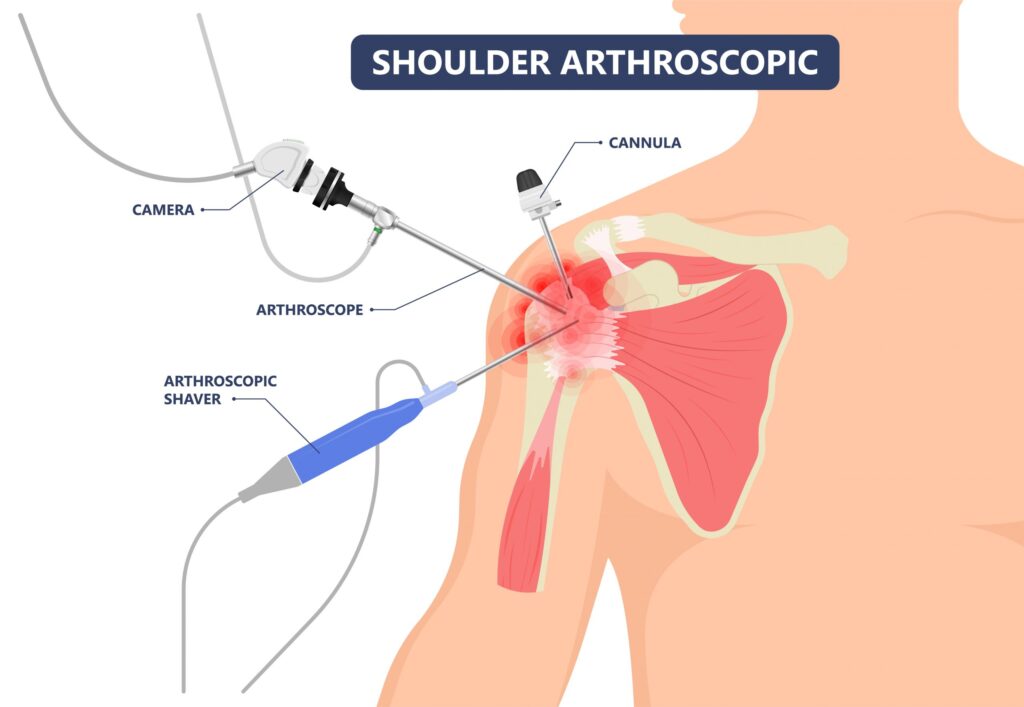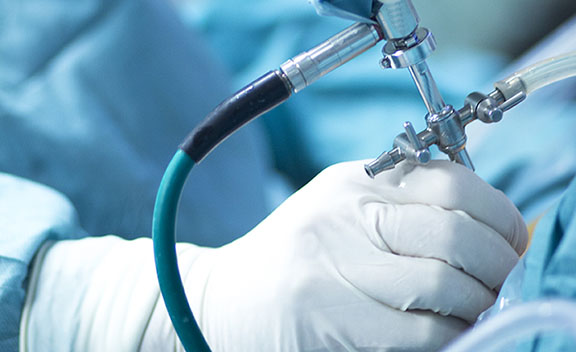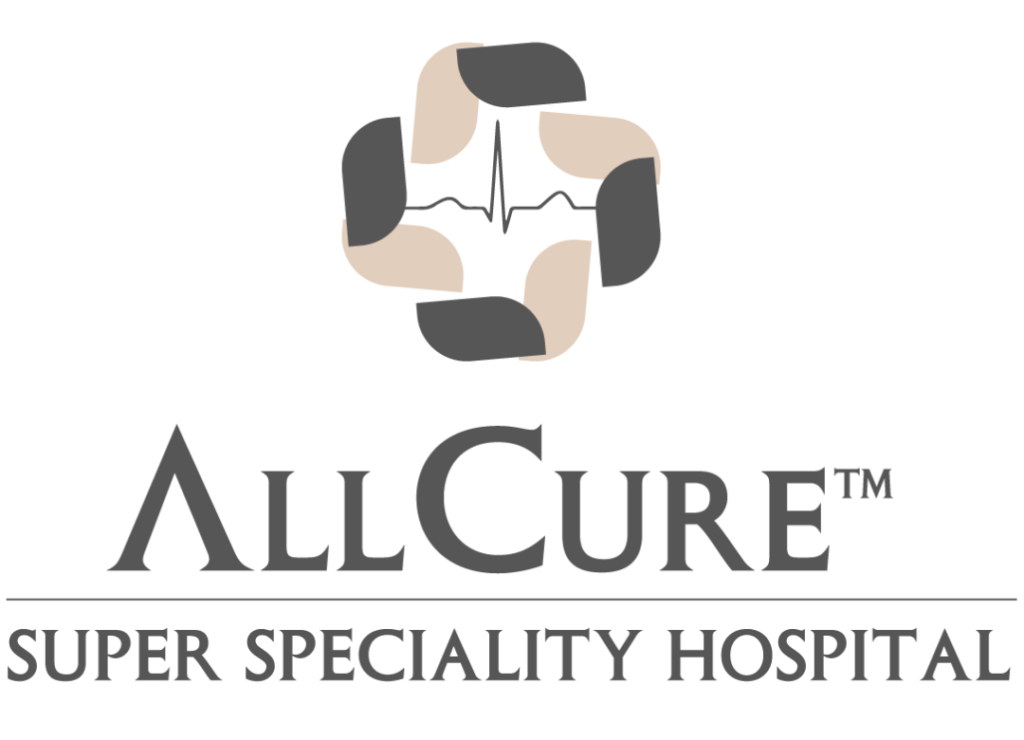Arthroscopic shoulder surgery represents a significant advancement in medical technology, offering a minimally invasive solution to treat a variety of shoulder conditions. The benefits of arthroscopic shoulder surgery procedure not only aims to relieve pain but also enhances mobility, providing hope for those suffering from debilitating shoulder issues.

Understanding Arthroscopic Shoulder Surgery
Arthroscopic shoulder surgery is a technique that uses a small camera called an arthroscope to examine or repair the tissues inside or around the shoulder joint. Arthroscopy differs from conventional open surgery by utilizing smaller incisions to insert the arthroscope and surgical tools, as opposed to the larger incisions required by traditional methods. This approach allows surgeons to view the shoulder joint on a screen and perform surgical procedures with precision. The surgery is commonly used to address issues such as rotator cuff tears, impingement syndrome, and shoulder instability, among others.
The benefits of arthroscopic shoulder surgery include its minimally invasive nature, leading to quicker recovery periods and less post-operative pain. This surgical method also allows for precise treatment of shoulder conditions, significantly improving patients’ range of motion and reducing the likelihood of complications. Moreover, the benefits of arthroscopic shoulder surgery extend to enhanced overall shoulder function, enabling patients to return to their normal activities and lifestyles more swiftly.
How Does Arthroscopic Surgery Target the Source of Shoulder Pain?
One of the primary benefits of arthroscopic shoulder surgery is its ability to directly address the underlying causes of shoulder pain. Conditions like torn rotator cuffs or damaged cartilage can lead to severe discomfort and limited function. Through arthroscopy, surgeons can repair these tissues, remove bone spurs, and eliminate inflamed bursae, directly targeting the source of pain. This focused approach alleviates pain and minimizes the risk of further injury, providing a long-term solution rather than a temporary relief.
The Role of Arthroscopic Surgery in Enhancing Mobility

Arthroscopic surgery plays a crucial role in improving shoulder mobility. By repairing damaged tissues and removing obstructions within the joint, the surgery restores the shoulder’s natural movement and flexibility. For individuals with conditions that limit shoulder mobility, such as frozen shoulder or labral tears, arthroscopy can significantly enhance the range of motion, making daily activities easier and improving the quality of life.
Can Arthroscopic Shoulder Surgery Improve Mobility?
Absolutely. The procedure’s precision allows for targeted repairs and adjustments that can restore the shoulder’s functionality to a great extent. Post-surgery, patients often experience a significant improvement in mobility, especially when coupled with a proper rehabilitation program. This restored mobility is crucial not only for athletes looking to return to their sport but also for individuals aiming to resume their daily routines without pain or restriction.
How Long Does It Take To Recover from Arthroscopic Shoulder Surgery?
Arthroscopic surgery recovery times can vary depending on the extent of the surgery and the individual’s overall health. Generally, patients may return to light daily activities within a few days to weeks after the procedure. However, a full arthroscopy procedure recovery, especially for those looking to engage in sports or heavy lifting, might take several months.
A dedicated physical therapy program is essential for regaining strength and mobility, with gradual improvements observed over time.
What Are the Risks of Arthroscopic Shoulder Surgery?
Arthroscopic shoulder surgery, while less invasive than traditional open surgery, still carries potential risks and complications. These risks are generally low, but it is important for patients to be aware of them when considering the procedure. Here are some of the risks associated with arthroscopic shoulder surgery:
- Infection: Rare but possible at the surgery site or within the joint.
- Nerve Damage: Accidental damage could cause numbness, tingling, or weakness.
- Blood Vessel Damage: Uncommon but can lead to bleeding or hematoma.
- Anesthesia Complications: Including allergic reactions and breathing difficulties.
- Stiffness and Loss of Mobility: Some patients may experience temporary or persistent stiffness.
- Incomplete Relief from Pain: The surgery might not fully alleviate the pain for all patients.
- Recurrent or New Shoulder Problems: Issues like rotator cuff tears may reoccur or new problems may arise.
How Successful Is Arthroscopic Shoulder Surgery?
The success rate of arthroscopic shoulder surgery is generally high, with many patients experiencing pain relief and improved function. Success rates can vary based on the specific condition being treated and the patient’s adherence to post-operative care and rehabilitation. Studies have shown favourable outcomes in terms of pain reduction, enhanced mobility, and return to pre-injury levels of activity.
In conclusion, arthroscopic shoulder surgery is an advancement in medical science, offering a minimally invasive yet highly effective solution for shoulder conditions. By targeting the root causes of pain, improving mobility, and requiring a shorter recovery time, it presents a promising option for those suffering from shoulder ailments. While considering this surgical option, it is vital to weigh the benefits against the potential risks and engage in a thorough discussion with a healthcare professional.
Ultimately, arthroscopic shoulder surgery can be a valuable tool in reclaiming one’s quality of life, allowing for a return to daily activities and pursuits without the burden of shoulder pain and limitation.
